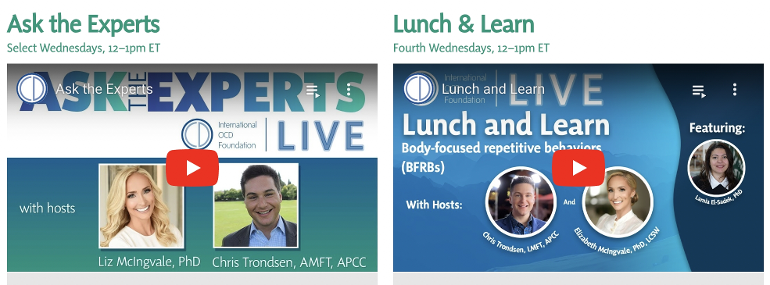The IOCDF has many weekly livestreams that you can watch FOR FREE on our youtube channel. You can ask questions to OCD/BDD/Hoarding experts, and can even give topic suggestions.
Click the link below, hit the subscribe button as well as the notification bell to get notifications of our newest videos.
Youtube Link: youtube.com/c/IOCDF
